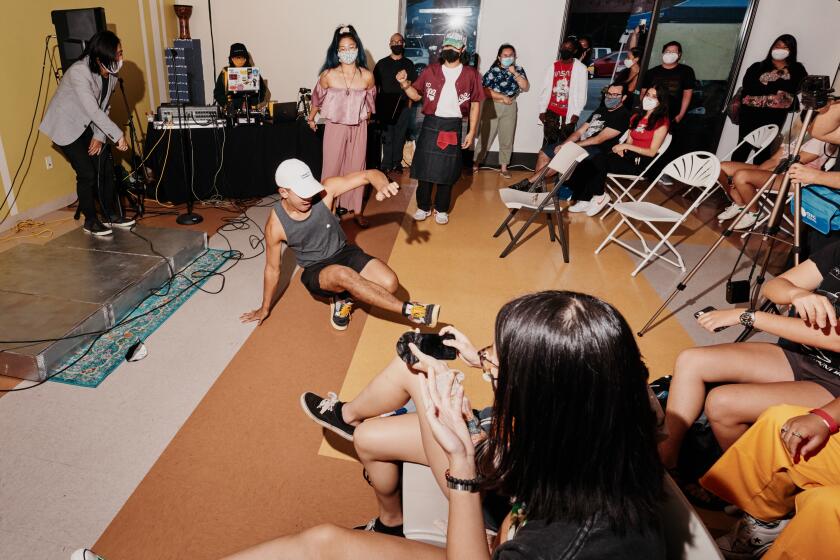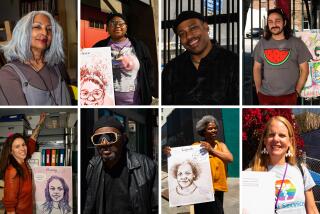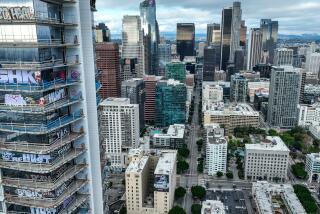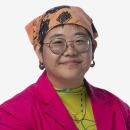Meet the Writers: The Black performance poetry impresarios of Long Beach
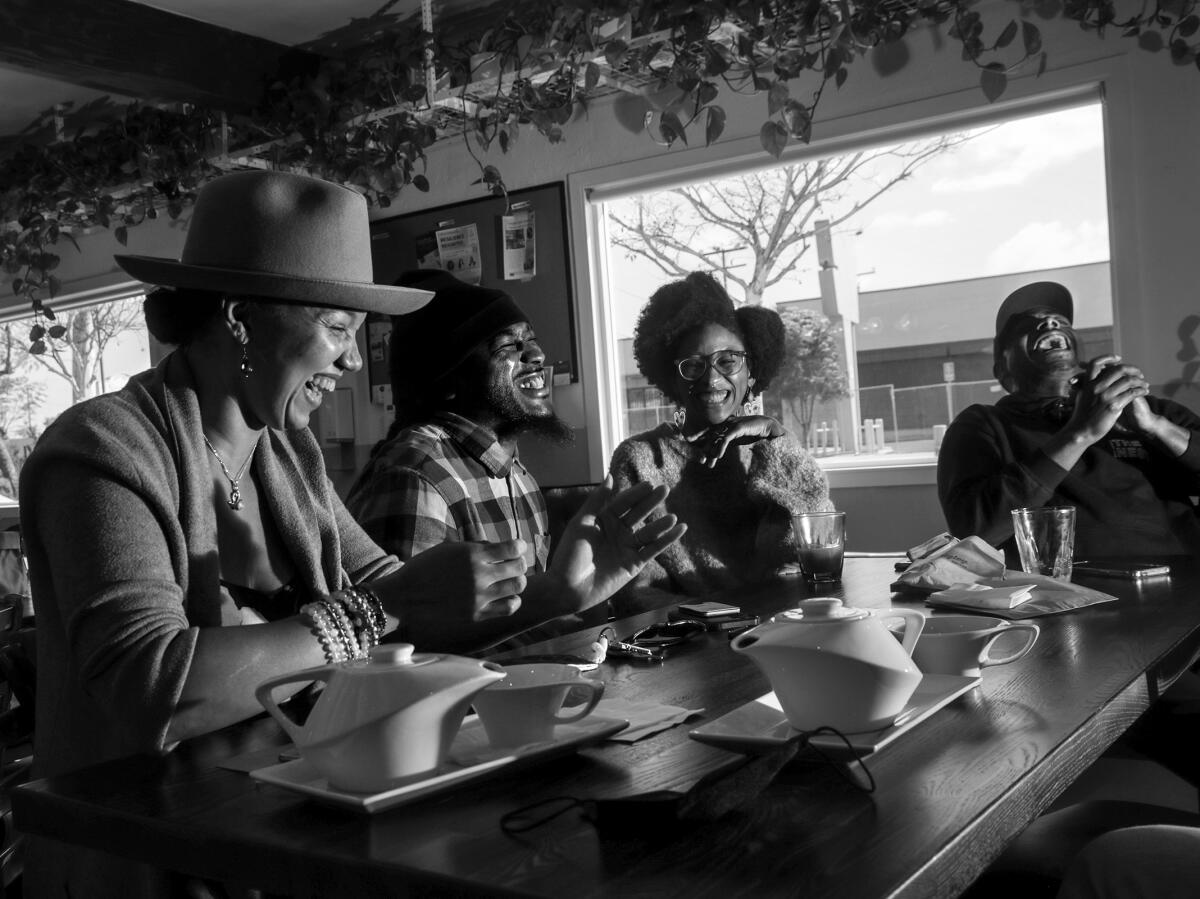
- Share via
This story is part of Lit City, our comprehensive guide to the literary geography of Los Angeles.
Long Beach has a long and too often overlooked role in Southern California’s artistic history, from Beat happenings in the 1960s to the vibrant nexus of poetry, performance and music that thrives 60 years later. A small but influential subset of the scene sat around a table recently when Micah Bournes — Long Beach native, poet and musician — gathered his friends (and a reporter) over coffee to talk shop.
The Black artists assembled at Wrigley Coffee — Bournes, Shelley Bruce, Antonio Cortez Appling and Keayva Mitchell —are pillars in Long Beach’s open-mic community. Bournes and Bruce co-founded the Undercommons, a workshop and open-mic space focused on Black artists. Appling founded the Definitive Soapbox, one of Long Beach’s longest-running open mics, and also runs the Nest, a hip Southern-influenced brunch spot in Bellflower. Mitchell is such a connoisseur of L.A.-area open mics that she’s been called a “matchmaker” of people and venues.
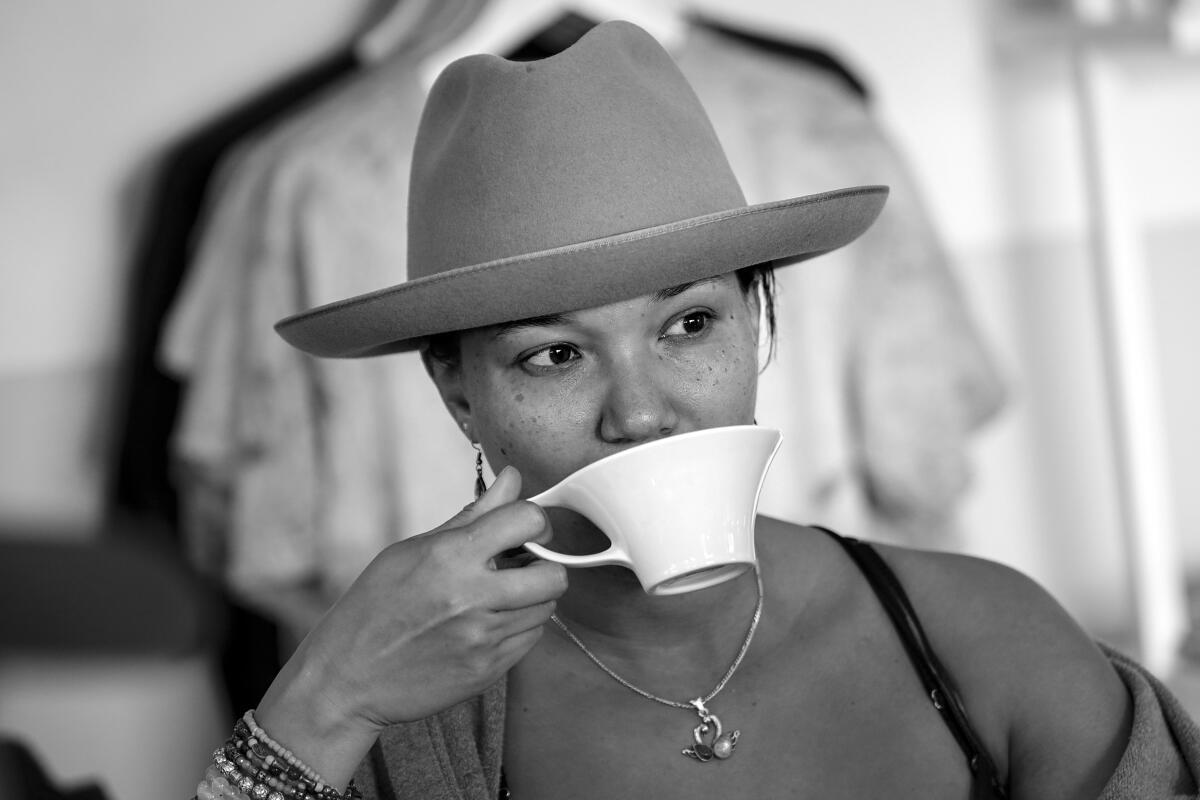
Over two hours at Wrigley, a cafe that supports locals facing housing insecurity, the artists hashed out what distinguishes Long Beach from other poetry scenes in Los Angeles. It comes down, they concluded, to a combination of distance and intimacy. Bruce, who has led open mics throughout Southern California for 10 years, finds that Long Beach cultivates vulnerability in its creative spaces.
“When I go to a bigger venue in New York or in L.A., I’m exhibiting, versus when I’m in Long Beach I feel like I’m at home,” she said.
Appling describes their city as a place where Black artists in particular can shed the burdens of representation. “Now there’s a place where we all are like, ‘Oh, I get to unleash my otherness,’” he said. “What it means to be a Black artist doesn’t have to be so monolithic [anymore].”
L.A.’s lonely? Authors are introverts? Don’t believe it. From a San Gabriel food club to a YA bash, meet the writers of the city in five scenes.
Long Beach’s open-mic community is certainly not monolithic. There isn’t really one “scene” but many, which don’t necessarily overlap. Bournes sounded amazed as he recalled a poetry event where he met a clique of poets he’d never seen before.
The conversation digressed, as it often does among this group, to food. “Do we have the best food scene in Southern California? No,” said Bournes. But in a town where restaurants often double as poetry venues, art is often the best thing on the menu. “I’ve always known that food and art are two really great reasons to get people in a room,” said Appling, who named the Nest after a poetry open mic he hosted in San Francisco.
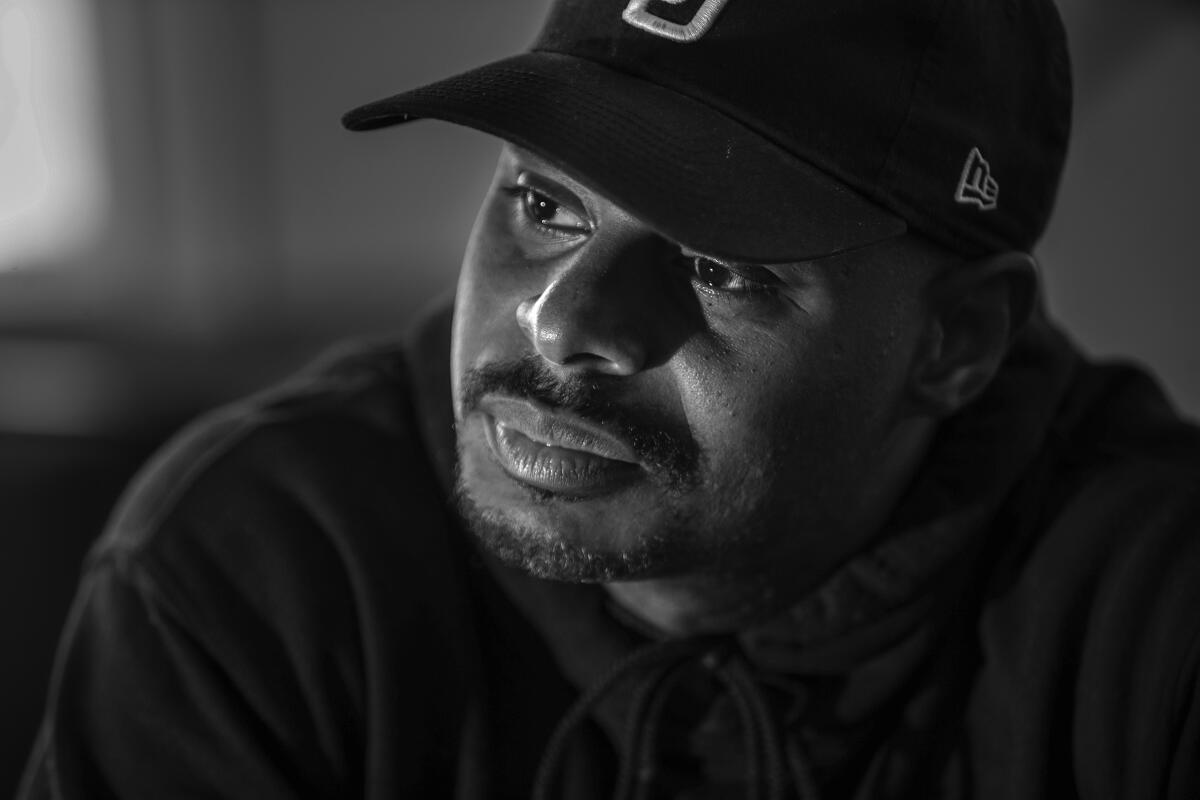
“All artists that I know in Long Beach really care about Long Beach,” Mitchell said. “If you say anything bad about Long Beach in front of me I’ll go HAM, even if it’s true. I haven’t felt that energy in other parts of L.A.”
Among the elements that make Long Beach a haven for poetry — a famously unprofitable profession — is affordability, though the city is far from immune to gentrification. Mitchell, who has lived in the city for the past 12 years, currently works two jobs at coffee shops and a third at a small investment firm while also studying at Long Beach City College. She warns that equity needs to be intentionally built into the infrastructure of Long Beach; otherwise, it could push out artists and communities of color.
Gerald Locklin, who died of COVID-19 this year, was a poet-professor who helped shape West Coast literature and turn Long Beach into a poetry hub. A Times staff writer who was his student and others reflect on his influence.
“Long Beach is really cool,” said Mitchell.”But it becomes less cool when you price out all the people who live here who make it cool.”
Serendipitously, Richard Shimizu, another Long Beach local, walked into Wrigley’s during the conversation. The poets said Shimizu has spent so much time attending and photographing Long Beach events that he’s become a beloved elder; his face adorns T-shirts in nearby shops — a symbol of the city’s cohesion and pride. He stopped at the table and handed Mitchell a bag of pastries.
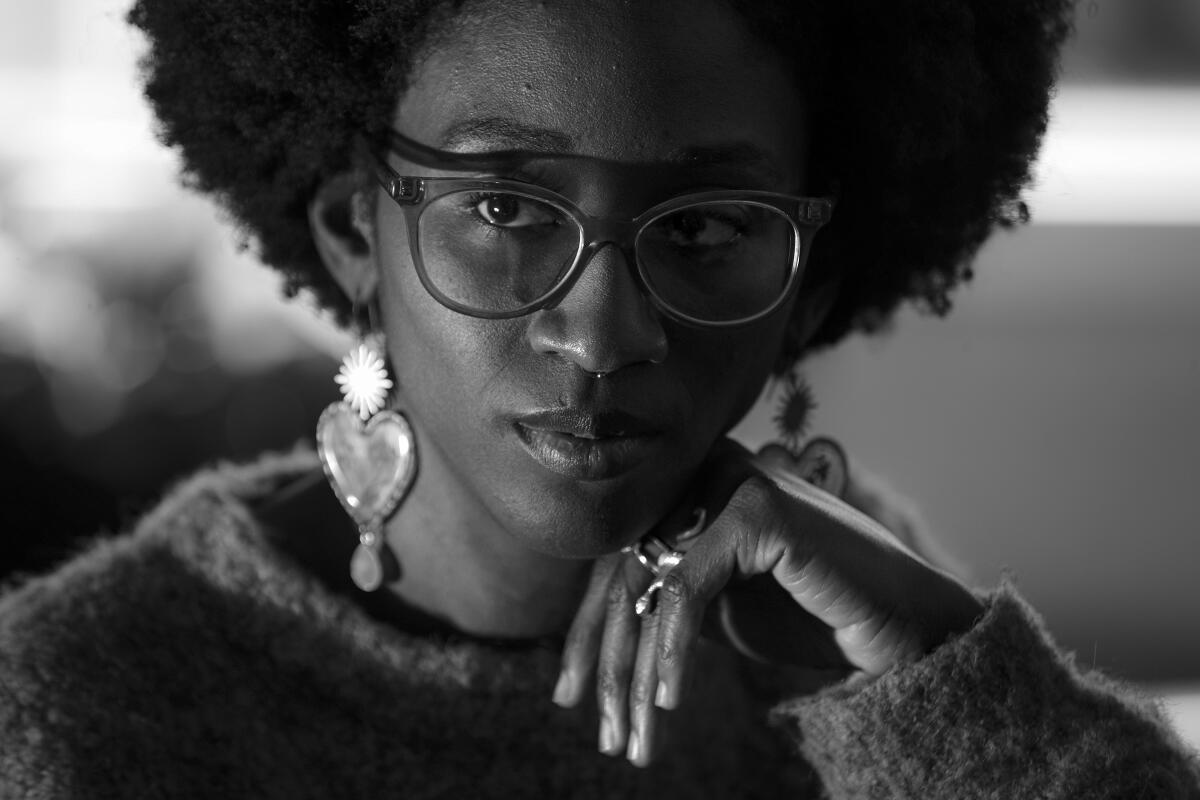
The pandemic left many open mics struggling to hold on to their homes. The shop where we sat is one example. It was Fox’s Coffee House, host to Definitive Soapbox, before it was forced to close in 2020. Now it’s bounced back under new ownership.
That resiliency is another thing native to Long Beach and its artists.
“If [a] venue gets shut down, we figure it out,” said Mitchell. “We find new spaces.”
Deng is a queer Taiwanese/Hong Konger American poet and journalist born and raised in the San Gabriel Valley.
From Boyle Heights to Filipinotown to the Autry Museum, venues are hosting poetry readings again, restoring a vital link between artists and their communities.
More to Read
Sign up for our Book Club newsletter
Get the latest news, events and more from the Los Angeles Times Book Club, and help us get L.A. reading and talking.
You may occasionally receive promotional content from the Los Angeles Times.

